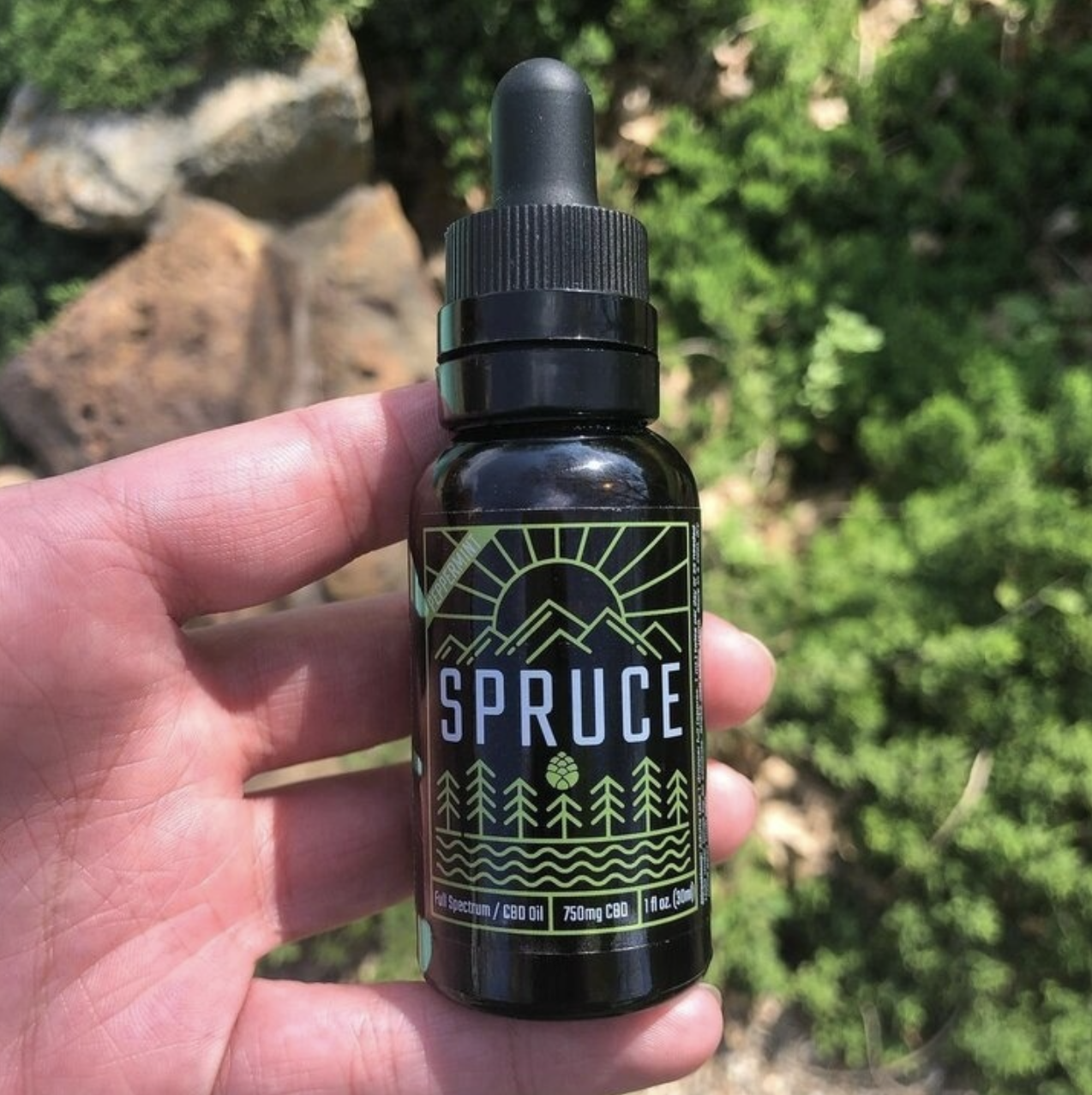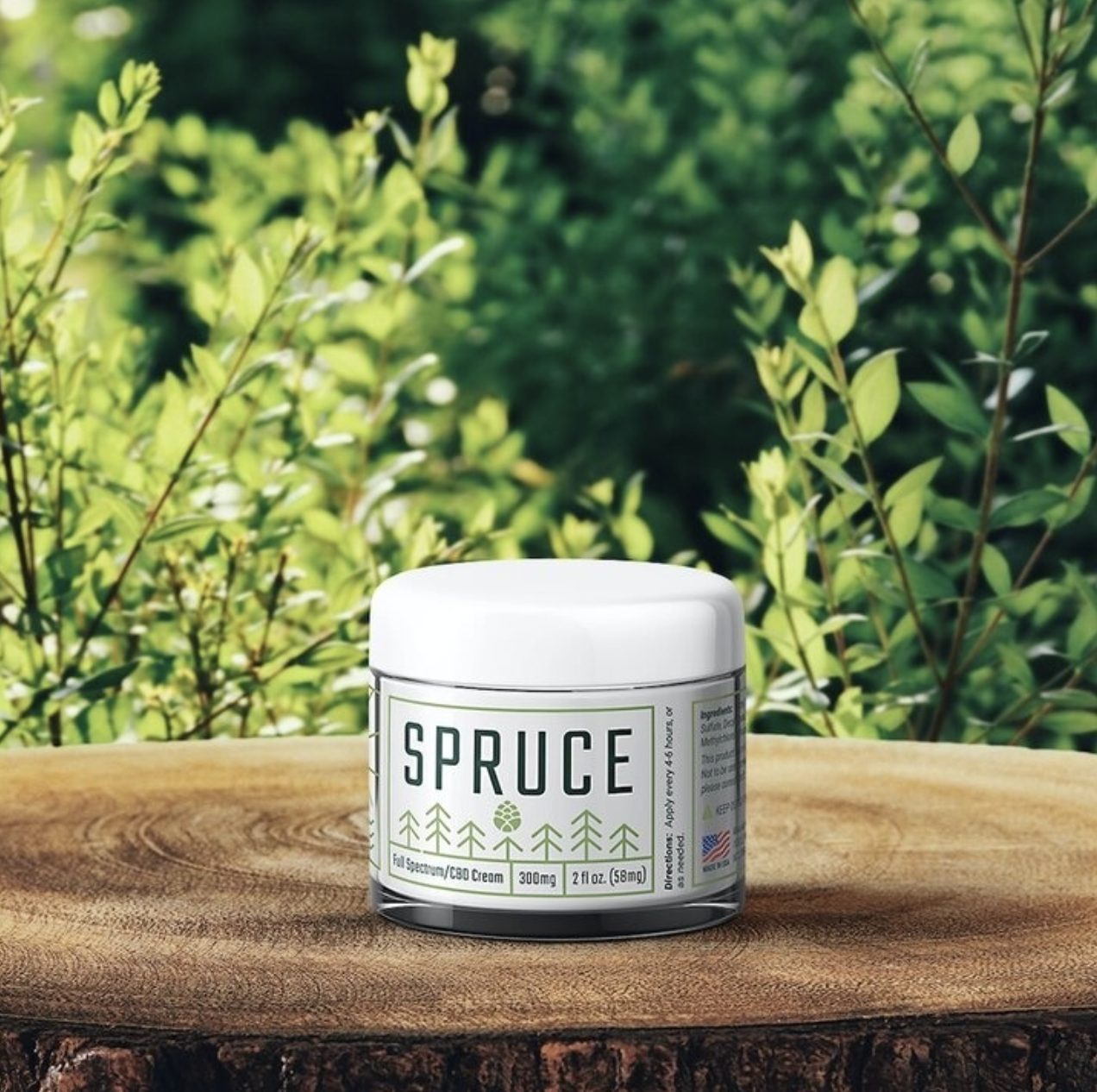CBN vs. CBD: Understanding the Differences and Benefits

Cannabinoids are compounds derived from the cannabis plant, each with unique properties and potential health benefits. Among these, CBD (cannabidiol) and CBN (cannabinol) have gained significant attention for their therapeutic potential, which does not come with the psychoactive effects typically associated with THC (tetrahydrocannabinol).
This comprehensive guide will explore the differences between CBN and CBD, their benefits, uses, and how to choose the right cannabinoid for your health goals. With a deeper understanding of these compounds, you can make informed choices that support your wellness journey. If you’re looking for high-quality CBD products, be sure to check out Spruce.
What Are Cannabinoids?
Cannabinoids are natural compounds found in the cannabis plant. Over 100 different cannabinoids exist, each with unique properties and effects on the human body. These compounds interact with the endocannabinoid system, a vital part of maintaining the body’s internal balance. This interaction influences various physiological processes, including mood, pain sensation, and appetite.
The two best-known cannabinoids are CBD (cannabidiol) and THC (tetrahydrocannabinol). While THC is famous for its psychoactive effects, CBD and other cannabinoids, such as CBN (cannabinol), do not cause a “high.” Instead, they offer potential health benefits that have captured the attention of researchers and consumers alike.
Understanding cannabinoids requires examining their origins and how they interact within the body. Through ongoing research, scientists are uncovering the vast potential these compounds hold. This knowledge empowers consumers to make informed choices in selecting products that fit their needs. As the study of cannabinoids advances, so does the understanding of their diverse applications.
The Basics of CBD and CBN
Cannabinoids like CBD and CBN are popular for their potential health benefits. They are both extracted from the cannabis plant but have distinct characteristics and uses. Understanding these differences helps individuals choose the right product for their needs. Here’s a closer look at what sets these two cannabinoids apart.
What Is CBD?
CBD, or cannabidiol, is one of the most prevalent cannabinoids found in the cannabis plant. It has gained immense popularity because it offers therapeutic properties without causing a psychoactive high. This makes CBD appealing to those seeking relief from various ailments without the mind-altering effects of THC. Commonly extracted from hemp, a variety of cannabis with low THC levels, CBD is available in oils, capsules, edibles, and topical products.
Scientific studies have shown that CBD can help alleviate pain, reduce anxiety, and improve sleep. Its anti-inflammatory properties make it a popular choice for those with chronic pain conditions. Additionally, CBD is known for its neuroprotective qualities, potentially benefiting those with neurological disorders.
CBD’s versatility extends to its use in everyday health routines. Many people incorporate CBD products to support overall wellness, using them as supplements to enhance physical and mental well-being. With ongoing research, the full spectrum of CBD’s benefits continues expanding, offering new health and healing possibilities.
What Is CBN?
CBN, or cannabinol, is another cannabinoid found in the cannabis plant. Unlike CBD, CBN is formed through the oxidation and decomposition of THC, which means it is not present in fresh cannabis. As the plant ages, THC converts into CBN; thus, CBN is more prevalent in older cannabis. CBN is often associated with its potential to aid sleep, as it is believed to have sedative effects.
Though less studied than CBD, CBN has shown promise in several areas. Early research suggests that CBN may help reduce inflammation, relieve pain, and stimulate appetite. Its mild psychoactive properties, though not as strong as THC, contribute to its reputation as a sleep aid.
CBN products are increasingly available as the demand for natural sleep solutions grows. As more studies are conducted, the understanding of CBN’s effects and benefits will likely expand.
CBN vs. CBD: Key Differences
Understanding the nuances between CBN and CBD is vital for making informed choices about their use. Although both are derived from the cannabis plant, they exhibit different chemical structures, effects, and applications. This section explores these differences to provide clarity on how each cannabinoid can fit into a wellness routine.
Chemical Composition
The chemical composition of cannabinoids plays a crucial role in their effects and uses. CBD and CBN, while both derived from the cannabis plant, have distinct chemical structures that result in different interactions with the body. CBD is extracted from hemp and has a stable structure that does not easily degrade. In contrast, CBN is a product of THC degradation, making its presence more prominent in aged cannabis.
These structural differences influence how each cannabinoid interacts with the endocannabinoid system. CBD’s structure allows it to bind indirectly with receptors, modulating various physiological functions without causing a high. On the other hand, CBN has a closer structural resemblance to THC, allowing it to bind more directly, albeit less potently, with CB1 receptors.
Because of their different chemical compositions, CBD and CBN are used for different purposes. Consumers can make informed decisions based on these differences, selecting the compound that best aligns with their health objectives. The choice between CBD and CBN often depends on individual needs and desired effects.
Effects on the Body
The effects of CBD and CBN on the body are shaped by their interactions with the endocannabinoid system. CBD is renowned for its calming and anti-inflammatory properties, providing relief from anxiety, pain, and inflammation. These effects make it a popular choice for those seeking a natural remedy for stress and chronic conditions.
CBN, while less researched, is often associated with sleep promotion and relaxation. Its mild sedative effects may help individuals struggling with insomnia or sleep disturbances. CBN’s potential anti-inflammatory and pain-relieving properties also contribute to its therapeutic profile, making it an appealing option for those in need of nighttime support.
The choice between CBD and CBN hinges on the desired outcomes. For daytime use, CBD’s nonsedative effects offer a solution for maintaining alertness while managing stress or discomfort. In contrast, CBN’s sleep-promoting qualities make it suitable for nighttime use, providing restful sleep without morning grogginess. Understanding these effects will enable consumers to tailor their cannabinoid use to their specific needs.
Common Uses
CBD and CBN are used in various ways to address different health concerns. CBD’s versatility allows it to be incorporated into a wide range of products, including oils, tinctures, capsules, edibles, and topicals. Its applications span from pain relief and anxiety reduction to skincare and wellness support. Many people use CBD as a daily supplement to enhance overall health and well-being.
CBN, though less common, is gaining recognition for its potential as a sleep aid. Products like CBN oils, capsules, and gummies offer targeted support for those seeking improved sleep quality. CBN’s mild psychoactive effects are generally well tolerated, making it a gentle option for enhancing relaxation and sleep.
Integrating CBD and CBN into a wellness routine provides a natural approach to achieving balance and addressing specific needs. With the growing availability of diverse cannabinoid products, individuals can explore different options to discover what works best.
Potential Benefits of CBD
CBD offers many potential benefits, making it a versatile and popular choice for natural health solutions. Its interaction with the endocannabinoid system allows it to effectively address several health concerns. Here’s a look at the specific benefits CBD may offer.
Pain Relief
CBD is widely recognized for its pain-relieving properties. Its ability to reduce inflammation and interact with neurotransmitters makes it an effective option for managing chronic pain conditions. Research has shown that CBD can alleviate pain associated with arthritis, multiple sclerosis, and fibromyalgia. By modulating the body’s endocannabinoid system, CBD helps reduce pain perception and improve quality of life.
Topical CBD products, like creams and balms, are popular for targeting localized pain. These products allow users to apply CBD directly to sore muscles or joints, providing relief without systemic effects. Oral CBD, in the form of oils or capsules, offers a convenient way to manage widespread pain and inflammation.
For those seeking natural pain-management solutions, CBD provides an alternative to traditional pain medications, which can have undesirable side effects. Its non-addictive nature and minimal side effects make it an appealing choice for long-term use. By incorporating CBD into their pain relief regimen, individuals can experience improved comfort and mobility.
Anxiety Reduction
CBD’s calming effects have made it a popular choice for reducing anxiety and stress. By interacting with serotonin receptors in the brain, CBD helps regulate mood and promote relaxation. Studies have demonstrated that CBD can effectively reduce symptoms of anxiety disorders, including generalized anxiety disorder, social anxiety disorder, and post-traumatic stress disorder.
Many individuals use CBD as a natural alternative to prescription medications for anxiety. Unlike some pharmaceuticals, CBD does not cause sedation or cognitive impairment, making it suitable for daytime use. CBD tinctures and capsules offer convenient dosing options for managing anxiety throughout the day.
Sleep Aid
CBD is also known for its potential to improve sleep quality. While not as effective a sedative as CBN, CBD can help regulate sleep patterns and promote relaxation before bedtime. By addressing factors that contribute to sleep disturbances, such as anxiety and pain, CBD creates a conducive environment for restful sleep.
CBD products designed for sleep, like CBD sleep gummies, support often combine CBD with other natural ingredients, like melatonin, to enhance their effects. These formulations provide a holistic approach to achieving better sleep without relying on harsh pharmaceuticals. For those who struggle with occasional sleeplessness, CBD offers a gentle and effective solution.
Regular use of CBD for sleep can help improve rest and more consistent sleep patterns. By incorporating CBD into their nighttime routine, individuals can enjoy the benefits of restorative sleep. This natural approach to sleep support aligns with the growing demand for safer and more sustainable wellness solutions.
Potential Benefits of CBN
CBN offers unique benefits, particularly in sleep support and relaxation. As research into this cannabinoid continues, its potential applications are expected to grow. In this section, we explore some of the specific benefits that CBN may provide.
Sleep Promotion
CBN interacts with the endocannabinoid system to induce relaxation and drowsiness, supporting restful sleep. CBN products like oils, capsules, and gummies are specifically formulated to aid in sleep. These products provide a gentle yet effective solution for individuals experiencing insomnia or who have difficulty falling asleep.
Pain Management
While not as extensively studied as CBD, CBN shows promise in pain management. Its potential anti-inflammatory and analgesic properties make it a candidate for addressing various pain conditions. By interacting with the body’s cannabinoid receptors, CBN may help reduce pain perception and provide relief for those with chronic pain.
CBN products designed for pain management include topical applications and oral supplements. These formulations offer targeted support for individuals seeking natural alternatives to conventional pain relief methods. CBN’s gentle effects make it suitable for long-term use without the risk of dependency.
For individuals exploring natural pain management solutions, CBN provides an additional option in their wellness toolkit. By incorporating CBN into their pain relief regimen, they can address discomfort while minimizing reliance on traditional pain medications. This approach aligns with the growing interest in holistic and sustainable health practices.
Appetite Stimulation
CBN’s potential to stimulate appetite is another area of interest for researchers. While less potent than THC in this regard, CBN may still offer benefits for individuals experiencing appetite loss due to medical conditions or treatments. By interacting with CB1 receptors, CBN can help enhance appetite and support nutritional intake.
CBN products targeting appetite stimulation include oils and edibles designed to promote healthy eating habits. These products can be particularly beneficial for individuals undergoing treatments that affect appetite, such as chemotherapy. CBN’s mild effects make it a manageable option for enhancing appetite without unwanted side effects.
For those seeking to improve their nutritional intake, CBN can be a valuable addition to their health regimen. By supporting appetite and encouraging regular meals, CBN contributes to overall well-being and recovery. This natural approach offers a gentle yet effective solution for managing appetite-related challenges.
How to Choose Between CBN and CBD
Choosing between CBN and CBD involves assessing personal health goals and understanding what each cannabinoid offers. Each of these compounds has unique properties and benefits, making it essential to align the choice with individual needs.
Consider Your Health Goals
When deciding between CBN and CBD, it’s important to consider personal health goals. For instance, if the primary goal is to manage anxiety or pain throughout the day, CBD might be preferable due to its nonsedative properties. Conversely, if enhancing sleep quality is a priority, CBN might be more suitable due to its potential sedative effects.
Evaluating individual health concerns helps in selecting the right cannabinoid. By focusing on desired outcomes, consumers can tailor their approach to wellness, ensuring that the chosen product aligns with their specific needs. This personalized strategy promotes more effective results and enhances overall well-being.
Taking the time to assess health objectives allows for a more informed decision-making process. By aligning cannabinoid use with personal goals, individuals can maximize the benefits of these natural compounds. This thoughtful approach ensures that the chosen product meets each user’s unique requirements.
Consult With a Healthcare Professional
Before incorporating CBN or CBD into a wellness routine, consulting with a healthcare professional is advisable. Professionals can provide guidance based on individual health conditions and medications, ensuring safe and effective use of cannabinoids. They can also help determine appropriate dosages and identify potential interactions with other treatments.
Healthcare providers offer valuable insights into the benefits and risks associated with cannabinoid use. By discussing their health history and current concerns, individuals can receive personalized recommendations that align with their needs. This collaborative approach enhances safety and efficacy, supporting optimal health outcomes.
Seeking professional advice empowers consumers to make informed choices about cannabinoid use. By partnering with healthcare providers, individuals can navigate the complex world of cannabinoids with confidence and clarity. This proactive strategy supports a safe and successful integration of CBN and CBD into a wellness plan.
Experiment Safely
CBN and CBD should be approached with caution and awareness. Starting with low doses and gradually increasingthem will allow you to assess your tolerance and response to these compounds. Observing how your body reacts will help you determine the most effective dosage and product type for your needs.
Keeping a journal to track experiences with CBN and CBD can provide valuable insights. Noting changes in symptoms, mood, and overall well-being assists in refining cannabinoid use over time. This systematic approach ensures that experimentation remains safe and supports desired health outcomes.
Experimenting with cannabinoids requires a mindful and measured approach. By prioritizing safety and observation, individuals can explore the potential benefits of CBN and CBD while minimizing risks.
Legal Status of CBD and CBN
Consumers should become familiar with the occasionally complex legal status of CBD and CBN. The legal landscape varies by region, with regulations continually evolving. Here’s a look at how CBD and CBN are currently regulated.
In the United States, the 2018 Farm Bill legalized hemp-derived CBD products containing less than 0.3% THC. This legislation opened the market for a wide range of CBD products, though state laws may impose additional restrictions. Consumers must be aware of their state’s specific regulations to ensure compliance.
CBN’s legal status is less clear, as it is derived from THC, which remains a controlled substance. However, as CBN is typically present in low concentrations and lacks significant psychoactive effects, it is often considered legal when extracted from hemp. The legal landscape is continuously changing, so staying informed about local regulations is essential.
To ensure compliance and avoid legal issues, consumers should research the legal status of CBD and CBN in their area before purchasing or using these products. Reputable brands provide transparency and adhere to legal standards, offering peace of mind to consumers. By verifying product legality and choosing trusted sources, individuals can use CBD and CBN with confidence and assurance, enjoying the benefits of these compounds while adhering to the law.
Conclusion: Making the Right Choice for You
Navigating the world of cannabinoids, such as CBN vs. CBD, requires a thoughtful and informed approach. Understanding the differences between these compounds allows individuals to select products that align with their health goals. By considering factors like effects, uses, and legal status, consumers can make empowered choices that support their well-being.
The decision to use CBN or CBD should be guided by personal needs and preferences. Consulting with healthcare professionals and experimenting safely ensures that these compounds are used effectively and responsibly. By embracing the potential benefits of cannabinoids, individuals can enhance their wellness journey and achieve a balanced, fulfilling life.
With the right knowledge and guidance, exploring cannabinoids becomes an enriching experience. Individuals can enjoy the many advantages these natural compounds offer by choosing products that meet specific health objectives. Whether you are seeking pain relief, improved sleep, or overall wellness, CBN and CBD offer valuable tools for achieving personal health goals.
Looking for premium CBD products to support your wellness journey? Discover the Spruce CBD collection for a natural boost to your health.
Frequently Asked Questions (FAQ)
Is CBN more powerful than CBD?
CBN is not as potent as CBD. While CBD is entirely non-psychoactive and is beneficial for anxiety, seizures, and pain, CBN, in larger doses, can produce mild psychoactive reactions and is mainly used for promoting sleep.
What is CBN high like?
CBN can be thought of as a weaker version of THC. It induces deep relaxation and drowsiness rather than uplifting or energizing effects.
Does CBN make you groggy in the morning?
Unlike traditional sleep aids, CBN does not generally cause morning grogginess. It helps promote restful sleep without leaving a drowsy feeling upon waking.
Is CBN hard on the liver?
CBN is generally considered safe. Concerns regarding liver damage are associated with high doses of CBD (not CBN), especially when it is taken with certain medications.








